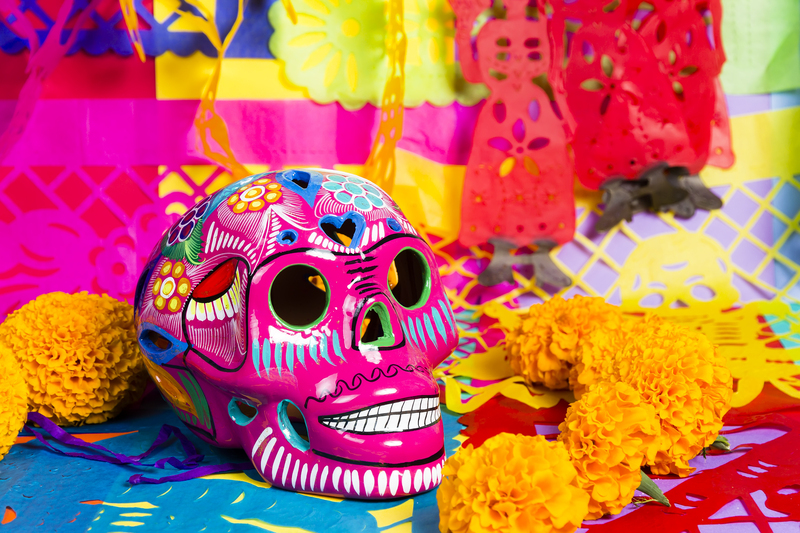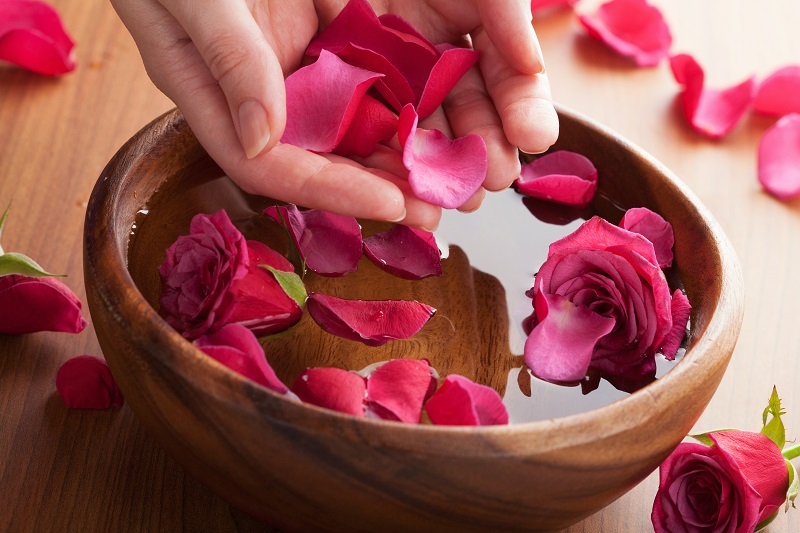Unlock the mysteries of sunflowers with these unexpected facts
Posted on 15/08/2025
Unlock the Mysteries of Sunflowers with These Unexpected Facts
Sunflowers--those bright, cheerful blossoms that follow the summer sun--have a way of capturing our hearts and sparking our curiosity. But beyond their golden petals and tall stems lies a world of fascinating secrets and surprising details you may never have imagined. Whether you're a seasoned gardener, a nature lover, or simply captivated by their radiant beauty, this comprehensive guide to sunflower mysteries and facts will leave you admiring these extraordinary plants even more.
Sunflower Origins: More Than Just a Pretty Face
The sunflower (Helianthus annuus) holds a rich and layered history, stretching back thousands of years. Let's unlock some surprising facts about these iconic blooms:
- Native to the Americas: While many associate sunflowers with vibrant European art and countryside gardens, these flowers originated in North America, where indigenous peoples first domesticated them over 4,500 years ago.
- Spiritual & Cultural Symbolism: For Native American tribes, sunflowers symbolized fertility, bounty, and harvest. They were used for food, oil, dyes, and even as part of spiritual rituals.
- The Journey to Europe: Sunflowers were introduced to Europe in the 16th century by Spanish explorers. Quickly, they became not only a staple crop but also an emblem of adoration and positivity.

The Science Behind Sunflower Heliotropism
If you've ever noticed a field of sunflowers, you might have observed that these flowers actually track the sun. This fascinating behavior is known as heliotropism. But how--and why--do sunflowers perform this solar ballet?
How Do Sunflowers Move?
- Young sunflowers face east in the morning and follow the sun as it travels west, thanks to growth hormones called auxins that accumulate on the shaded side of the stem, causing it to elongate and turn towards the light.
- As sunflowers mature, this movement stops. The heads increasingly face east--a clever adaptation that attracts more pollinators by warming the flower early in the day and making nectar more accessible.
Fun Fact: This phenomenon is so precise that scientists have studied sunflowers to better understand plant circadian rhythms--making them a model organism in plant biology.
Unexpected Sunflower Facts That Will Surprise You
Let's dig even deeper into the mysterious world of sunflowers with a collection of truly unexpected and strange sunflower facts:
1. Sunflowers Can Clean Toxic Soil
Beyond their sunny appearance, sunflowers have a serious environmental superpower: phytoremediation. These hardy plants can pull toxic substances--including heavy metals such as lead, arsenic, and uranium--from contaminated soils.
- After the Chernobyl and Fukushima nuclear disasters, scientists planted fields of sunflowers to help decontaminate radioactive soils. Their roots absorb radioactive isotopes, and the plants can then be safely disposed of.
2. The Tallest Sunflower Reached Record Heights
Sunflowers are known for their impressive size, but some achieve truly jaw-dropping heights. The current Guinness World Record for the tallest sunflower stands at a staggering 30 feet 1 inch (9.17 meters), grown by Hans-Peter Schiffer in Germany.
- Many home gardeners attempt to break the record each year, but it's not as simple as it looks--experts recommend careful soil preparation, strategic watering, and a bit of luck from Mother Nature!
3. Sunflowers Come in Many Colors--Not Just Yellow
Think sunflowers only bloom in classic yellow? Think again! While yellow is most famous, there are varieties with red, purple, orange, white, or even bi-colored petals.
- Sunflower varieties like 'Moulin Rouge' and 'Chocolate Cherry' wow with deep burgundy hues, while 'Italian White' stuns with creamy pale petals.
4. Sunflower Heads Are Actually Hundreds of Mini Flowers
The large round head of a sunflower isn't a single flower--it's a collection of thousands of tiny flowers called florets.
- The outer petals (or ray florets) are sterile, while the inner disk is packed with fertile flowers--each capable of becoming a seed.
The Mathematical Marvel: The Fibonacci Sequence
There's a reason sunflower heads look so beautifully symmetrical and appealing to the eye. Each spiral of seeds in a sunflower follows the Fibonacci sequence, a famous mathematical pattern found throughout nature.
- On average, you'll find 34 spirals in one direction and 55 in the other, both numbers are consecutive in the Fibonacci sequence. Some large sunflowers may have even higher pairings: 89 and 144.
The arrangement allows for the highest possible packing density, maximizing the number of seeds each head can develop--nature's own example of efficiency and beauty!
Unexpected Roles Sunflowers Play in Our Lives
Beyond gardens and bouquets, sunflowers impact culture, economy, health, and even space exploration:
Sunflower Seeds: From Snack to Superfood
Sunflower seeds are a global staple loved for their savory flavor and nutritional value. But did you know:
- Sunflower seeds are packed with vitamin E, magnesium, selenium, and healthy fats. They're known to boost cardiovascular and brain health.
- Native Americans ground sunflower seeds into flour, used them in porridges, and even made sunflower butter--centuries before peanut butter became mainstream.
Sunflower Oil: Health Benefits and Beyond
Pressed sunflower seeds produce sunflower oil, one of the world's most widely used cooking oils:
- Sunflower oil is naturally high in vitamin E and low in saturated fat, making it a heart-healthy choice.
- It's used in cosmetics and skincare for its ability to lock in moisture and soothe irritated skin.
In Art, Literature, and Space
- The painter Vincent van Gogh immortalized sunflowers in a series of iconic paintings that are celebrated worldwide.
- Astronauts on the International Space Station have grown sunflowers in zero gravity as part of experiments on plant growth in space.
- In literature, sunflowers symbolize devotion, loyalty, and hope.
Unlocking More Mysteries: Sunflower Folklore and Symbolism
The symbolism of sunflowers evolves across time and cultures:
- In Greek mythology, the nymph Clytie transforms into a sunflower, forever following the Sun God Apollo--creating an ancient link between the flower and unrequited love.
- Sunflowers are often gifted to represent positivity, longevity, and happiness because of their vibrant color and sun-seeking behavior.
Grow Sunflowers at Home: Tips for Gardeners
Want to bring some sunshine to your outdoor space? Follow these surprising tips to cultivate sunflowers successfully:
- Choose a Sunny Spot: Sunflowers need at least six hours of full sun daily.
- Good Drainage Matters: These plants dislike waterlogged roots--plant them in well-drained soil.
- Support Tall Varieties: Use stakes or grow against a fence to help support towering stalks.
- Defend Against Pests: Watch out for birds and squirrels, who love seeds as much as humans do!
- Embrace Diversity: Try growing some unexpected varieties for a garden full of color and surprise.
Environmentally Friendly and Sustainable
Sunflowers aren't just pretty--they're powerful allies for the environment.
- Many farmers use sunflowers as a cover crop to improve soil fertility, prevent erosion, and attract beneficial pollinators.
- Bees, butterflies, and birds flock to sunflower patches, making them a magnet for vibrant wildlife.
Fascinating Sunflower Trivia
- Sunflowers have been to space: NASA astronauts have grown sunflowers aboard the International Space Station to study plant responses in microgravity.
- One sunflower plant can hold up to 2,000 seeds!
- Every part of the sunflower is usable--from petals for dye, seeds for snacks and oil, to stems for birdhouses and crafts.
- The French call sunflowers "tournesol," which literally means "turns with the sun."

Frequently Asked Questions About Sunflowers
Why Do Sunflowers Face East?
As sunflowers mature, they stop tracking the sun from east to west and instead face east. This adaptation helps them warm up quickly in the morning, which attracts more pollinators and helps produce better seeds.
Are Sunflowers Annual or Perennial?
Most sunflower types are annuals, completing their life cycle in a single season. However, there are perennial varieties, such as Helianthus tuberosus (Jerusalem artichoke), which regrow each year.
Can You Eat All Sunflowers?
While common sunflower seeds are edible and nutritious, not all ornamental varieties produce palatable or plentiful seeds. Always identify the variety before consuming parts of the plant.
Conclusion: Unlocking the Eternal Allure of Sunflowers
Sunflowers stand tall as symbols of vitality, hope, and joy, their mysteries stretching from their mathematical structure to their ability to heal the planet. These remarkable blooms offer far more than just beauty--they are envoys of environmental healing, sources of nourishment, and icons in art and culture.
If you've ever admired a sunflower, you've gazed into one of nature's greatest marvels. With these unexpected sunflower facts and mysteries uncovered, you're now equipped to see these enchanting flowers in a whole new light.
Bring a sunflower into your life--whether in your garden, on your plate, or in your artwork--and unlock a world of natural wonders waiting right before your eyes!
Latest Posts
Peony Flowers: A Journey Through Symbolism and Color
Learn What Garden Bloom Echoes Your Personality
Hassle-Free Office Plants that Thrive with Minimal Care
Growing Orchids with Confidence: A Care Guide
Unlock the mysteries of sunflowers with these unexpected facts






